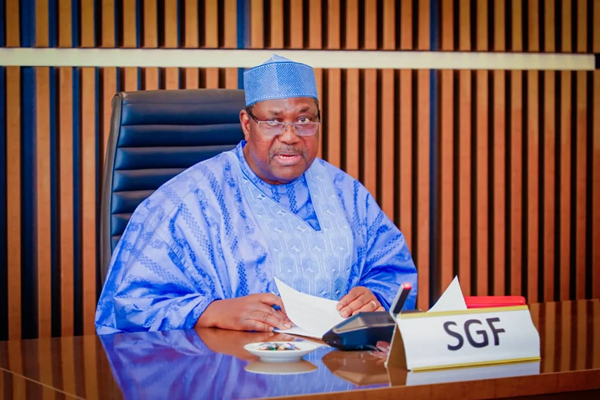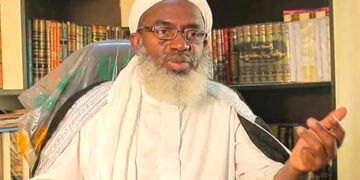The Secretary to the Government of the Federation (SGF), Sen. George Akume, has said consulting engineers were crucial partners in Nigeria’s drive to bridge its infrastructure deficit and achieve sustainable national development.
He urged engineers to continue providing the technical leadership and innovative solutions needed to accelerate national development, adding that bridging Nigeria’s infrastructure gap requires synergy between government, private firms, academia, and development partners.
Akume represented by senior special assistant, Technical, Prof. Babatunde Bolaji, stated this at the 47th Annual Conference 2025 and General Meeting of the Association for Consulting Engineering in Nigeria (ACEN), with the theme“Closing the National Infrastructure Deficit and the Strategic Role of Consulting Engineers” on Tuesday in Abuja.
The SGF said the theme of the conference aligned perfectly with President Bola Tinubu’s Renewed Hope Agenda, which prioritised massive investment in infrastructure as a catalyst for economic transformation and job creation.
He said “None of these efforts will be possible without the technical competence and innovation of Nigerian consulting engineers. ACEN members are the unsung heroes, ensuring that our roads, bridges, water systems, and power projects meet global standards of safety, efficiency, and sustainability.
“The federal government recognises your critical role, from feasibility studies to project management and maintenance, and we are committed to deeper partnership with your association.
“Through the Presidential Council on Infrastructure Delivery and Monitoring, we are introducing new frameworks for quality assurance, capacity building, and local content optimisation in engineering consultancy”.
Akume reaffirmed the government’s commitment to strengthening collaboration with ACEN and other professional bodies through the Presidential Council on Infrastructure Delivery and Monitoring, which is focused on enhancing quality assurance, capacity building, and local content in project execution.
He also highlighted the administration’s ongoing infrastructure programmes, including major highway projects, rail modernisation, and power sector reforms, as part of efforts to boost connectivity, productivity, and inclusive growth.
Akume called for stronger collaboration between government, private consulting firms, academia, and financiers to sustainably close the infrastructure gap.
“Together, we can deliver the resilient and sustainable infrastructure that Nigeria’s future demands.
“I assure you that the Tinubu administration remains steadfast in building the infrastructure foundation for inclusive growth and national renewal.”
In his Keynote remarks,the managing director and chief executive officer of the Rural Electrification Agency (REA), Dr Abba Aliyu, described the nation’s lingering electricity challenge as both a national and professional test for engineers.
He noted that in spite of decades of policy discussions and political promises, over 86 million Nigerians still lacked access to reliable electricity, a figure that places Nigeria among the countries with the highest number of people without electricity access globally.
“Nigeria has the highest number of people without electricity access challenges. And to me, it is a challenge to engineers.
“It is a challenge to the people that are innovative, people that have the technical know-how to develop innovative infrastructure to address this access challenge.
“But not only that, while Nigeria we are talking of addressing the access challenge, the global dynamic is changing completely.”
Aliyu emphasised that while Nigeria is still striving to achieve universal electricity access, global energy systems are rapidly evolving, with advanced economies already preparing for the massive power demands of artificial intelligence (AI) and other high-tech industries.
“By 2030, it is projected that AI penetration alone will require about 945 terawatt-hours of electricity globally. While other countries are expanding generation to meet such futuristic needs, we are still trying to provide basic access to millions,” he observed.
He therefore called on Nigerian engineers to lead the charge in bridging the country’s infrastructure and electricity access gaps through innovation, local manufacturing, and sustainable energy solutions.
The president, Nigerian Society of Engineers (NSE), Mrs Margaret Oguntala, said ACEN has consistently promoted the judicious deployment of resources in the face of competing national priorities, ensuring value for money, and upholding the principles of transparency and good governance in project execution.
“Given the multi-faceted economic realities currently facing our country, this platform offers a unique opportunity for critical dialogue and strategic engagements on how best to mitigate the perennial challenges confronting our infrastructure and development sectors.
“Irrespective of prevailing economic constraints, it is imperative that the execution of infrastructure projects by both subnational and federal governments continue unabated. These projects remain the backbone of national development, job creation, and economic stability.





